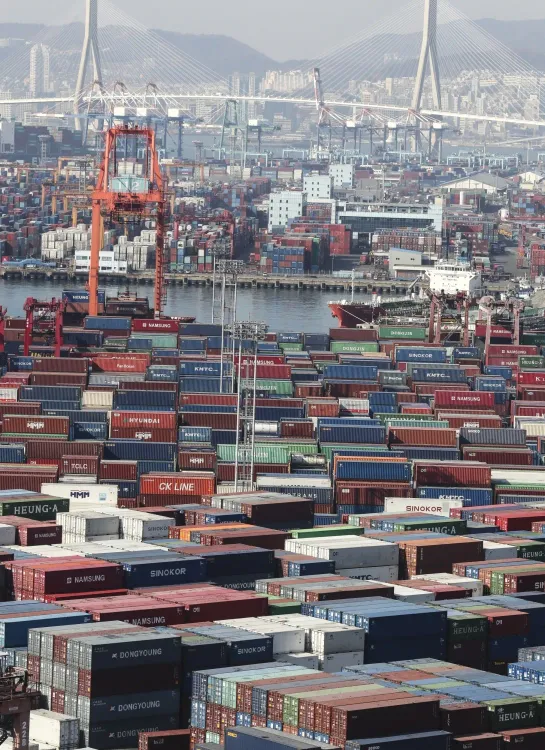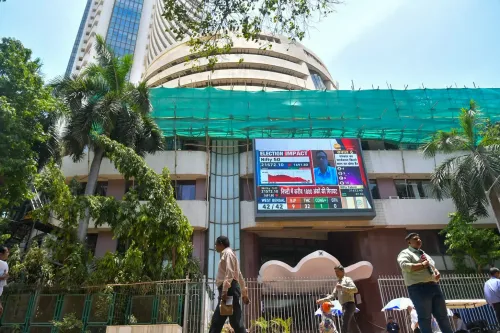How Did S. Korean Exports Rise for the 5th Month in October?

Synopsis
Key Takeaways
- Exports grew 3.6% year-on-year in October.
- Strong demand for semiconductors fueled growth.
- Imports decreased by 1.5%, resulting in a trade surplus.
- Shipments to the U.S. fell by 16.2%.
- Exports to Latin America surged by 99%.
Seoul, Nov 1 (NationPress) South Korea's exports have surged by 3.6% compared to the same month last year in October, marking the fifth month of continuous growth. This trend persists even with a decline in shipments to the United States, primarily driven by robust demand for semiconductors, as reported by government data released on Saturday.
The total value of outbound shipments reached $59.57 billion last month, based on figures compiled by the Ministry of Trade, Industry and Resources, marking an ongoing streak of year-over-year increases since June, as highlighted by the Yonhap news agency.
On the other hand, imports fell by 1.5% year-on-year to $53.52 billion, leading to a favorable trade surplus of $6.06 billion.
Industry Minister Kim Jung-kwan pointed out that the continuous rise in exports is largely due to the strong performance in the semiconductor and shipbuilding sectors. He mentioned that the newly established trade agreement between South Korea and the U.S. will assist in alleviating trade uncertainties.
During a summit on the sidelines of the Asia-Pacific Economic Cooperation (APEC) meeting in Gyeongju, President Lee Jae Myung and U.S. President Donald Trump finalized the details of the trade agreement, which includes Seoul's $350 billion investment commitment and adjustments to tariffs on automobiles.
In terms of sectors, semiconductor exports skyrocketed by 25.4% year-on-year, achieving $15.73 billion, the highest figure ever recorded in October, fueled by rising prices driven by high demand for advanced semiconductors like high-bandwidth memory and DDR5.
This marks the eighth consecutive month of growth in Korea's chip exports. Additionally, ship exports, including those for offshore plants, surged by 131.2% to $4.69 billion, also demonstrating growth for the eighth consecutive month.
Moreover, exports of petroleum products increased by 12.7% to $3.83 billion, while computer exports rose by 1.7% to $980 million.
However, most other items experienced declines in exports, attributed to reduced working days in October due to the extended Chuseok holiday.
Automobile exports dropped by 10.5% to $5.55 billion, secondary battery exports fell by 14% to $540 million, and steel exports decreased by 21.5% to $2.25 billion.
Examining export destinations, shipments to the U.S. experienced a 16.2% drop to $8.71 billion in October, largely due to decreases in automobile, auto parts, and steel exports attributed to tariff impacts.
Exports to China also saw a contraction of 5.1% to $11.55 billion, while shipments to the Association of Southeast Asian Nations (ASEAN) fell 6.5% to $9.4 billion.
Shipments to the European Union and India declined by 2% and 1.2% to $5.19 billion and $1.49 billion, respectively.
Conversely, exports to Latin America soared by 99% to a record high of $4.71 billion, driven by offshore plant sales.
Exports to the Commonwealth of Independent States (CIS), which includes Russia, rose by 34.4% to $1.34 billion, marking the eighth consecutive month of growth.
Shipments to Taiwan leaped 46% to $5.15 billion, achieving the highest figure ever for October, bolstered by strong semiconductor demand.









